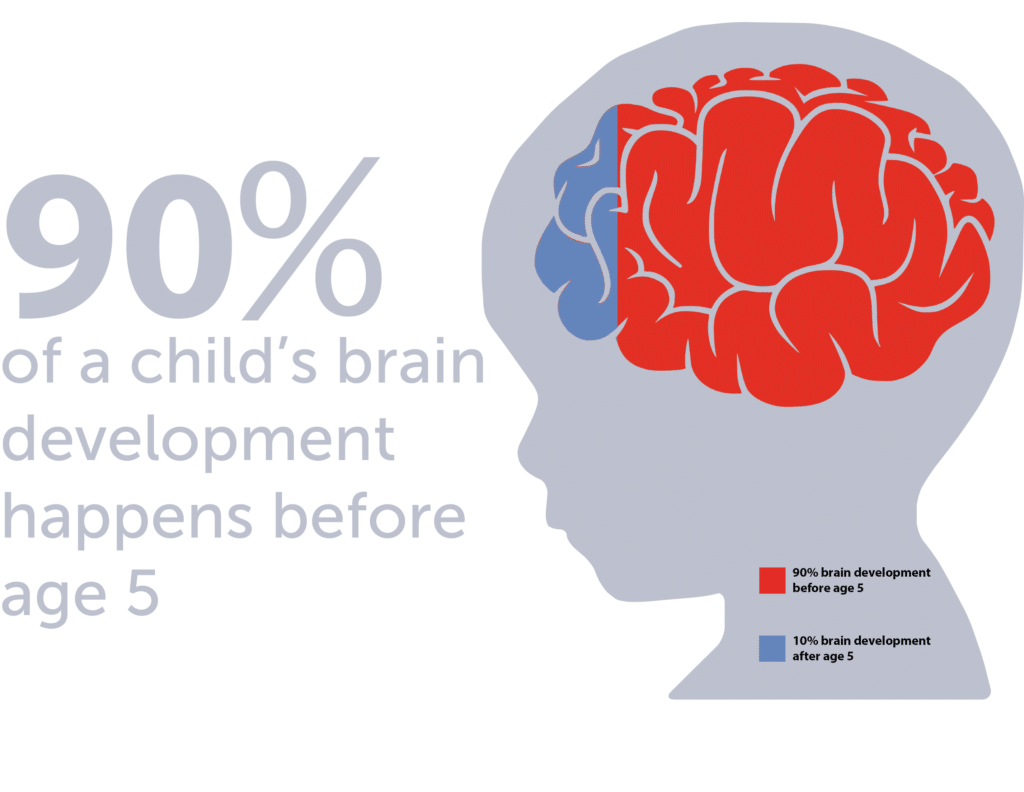 Source: bing.com
Source: bing.comAs a new parent, it’s natural to want to keep your baby entertained and stimulated, but did you know that too much screen time can actually be detrimental to their developing brain? In today’s digital age, it’s easy to let your baby watch TV or play with a tablet, but it’s important to consider the impact this may have on their cognitive and emotional development.
Table of Contents
The Risks of Too Much Screen Time
Research has shown that excessive screen time can lead to a variety of negative outcomes for babies, including delayed language development, poor social skills, and attention problems. These risks are particularly concerning during the first two years of life, when the brain is rapidly developing and forming new connections.
One of the main concerns with screen time is that it can be overstimulating for a baby’s developing brain. Unlike real-life interactions, which are rich with sensory experiences, screens provide a limited and often repetitive set of stimuli. This can lead to a lack of variety and complexity in the types of experiences a baby is exposed to, which can hinder their cognitive development.
Another risk of too much screen time is that it can interfere with a baby’s ability to form healthy attachments with their caregivers. Babies need to interact with real people in order to learn social skills and build emotional connections. When a baby is focused on a screen, they may miss out on important opportunities to bond with their caregivers and learn from their interactions.
Recommendations for Screen Time
So what can you do to minimize the risks of screen time for your baby? The American Academy of Pediatrics recommends that children under 18 months should avoid all screen time, except for video chatting with family and friends. For children aged 18-24 months, screen time should be limited to high-quality programming that is watched with a caregiver.
For children over 2 years old, the AAP recommends no more than 1 hour of screen time per day, and that screen time should be balanced with plenty of other activities, such as outdoor play, reading, and imaginative play. It’s also important to choose age-appropriate content that is educational and non-violent.
The Benefits of Real-Life Interaction
While it may be tempting to rely on screens to keep your baby entertained, it’s important to remember that real-life interactions are far more valuable for their developing brain. When your baby interacts with you and other caregivers, they are exposed to a wide range of sensory experiences, such as touch, smell, and sound. These experiences help to build new neural connections in the brain, which are essential for cognitive and emotional development.
Real-life interactions also provide your baby with important opportunities to learn social skills, such as communication, empathy, and cooperation. These skills are essential for building healthy relationships throughout life, and they cannot be learned from screens.
Conclusion
In conclusion, while screens may seem like an easy way to keep your baby entertained, it’s important to consider the risks they may pose to their developing brain. By following the AAP’s recommendations for screen time and prioritizing real-life interactions, you can help to promote your baby’s cognitive and emotional development, and set them up for success in the future.
Frequently Asked Questions
Q: Can I let my baby watch educational videos on a tablet?
A: The AAP recommends that children under 18 months should avoid all screen time, except for video chatting with family and friends. For children aged 18-24 months, screen time should be limited to high-quality programming that is watched with a caregiver.
Q: What are the risks of too much screen time for babies?
A: Too much screen time can lead to delayed language development, poor social skills, and attention problems. It can also interfere with a baby’s ability to form healthy attachments with their caregivers.
Q: How can I promote my baby’s cognitive and emotional development?
A: Prioritize real-life interactions with your baby, such as playing, reading, and talking. These experiences provide a wider range of sensory stimuli and help to build new neural connections in the brain.
Q: How much screen time is recommended for children over 2 years old?
A: The AAP recommends no more than 1 hour of screen time per day for children over 2 years old, and that screen time should be balanced with plenty of other activities, such as outdoor play, reading, and imaginative play.
Q: What types of content should I choose for my baby?
A: Choose age-appropriate content that is educational and non-violent. Avoid shows or games that are too overstimulating or repetitive.
